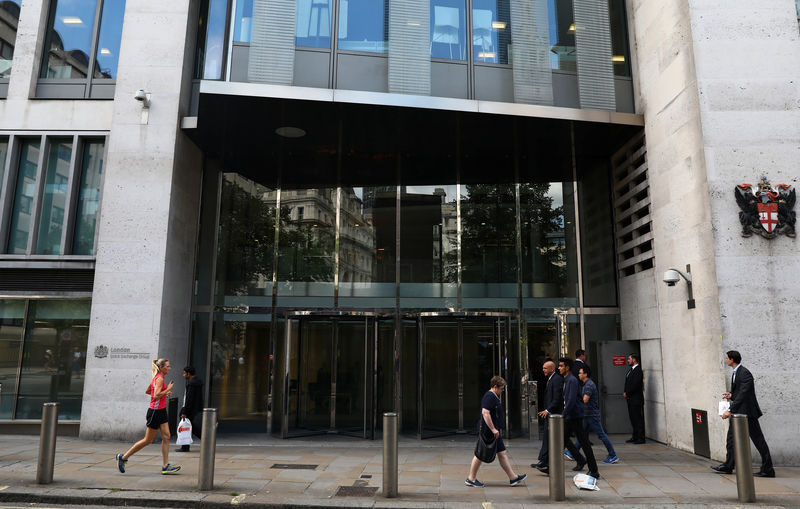Proactive Investors -
- FTSE 100 up 18 points
- Inflation builds pace
- Betting firms, housebuilders up
Latest mortgage cuts hit as inflation bodes well for housing market
Mortgage rate cuts by Lloyds Banking Group PLC (LON:LLOY)’s Halifax and Nationwide Building Society (LON:NBS) hit the market on Wednesday, alongside a positive set of inflation data.
Announced on Tuesday, the cuts by the lenders include interest rate reductions of up to 0.37% on three-year remortgage products at Halifax and 0.20% on Nationwide’s fixed deals.
These follow cuts to mortgage rates by a string of rival lenders, as banks anticipate further reductions in base interest later this year - a narrative supported by inflation data on Wednesday, according to analysts… Read more
Though largely priced in by lenders, according to Hargreaves Lansdown’s Sarah Coles, markets have been left anticipating two Bank of England cuts before the year-end.
This is after ONS data showed consumer prices ticked up slower than expected by 2.2% in July, but key services inflation subsided from 5.7% to 5.2% month on month.
“The outlook for mortgage rates should boost demand in the coming months,” Pantheon Macroeconomics analysts said... Read more
Housebuilders were among the FTSE 100’s big risers on Wednesday following the data, including Persimmon PLC (LON:PSN), Barratt Developments PLC (LON:BDEV), Berkeley Group Holdings PLC (LON:BKGH) and Taylor Wimpey PLC (LON:TW).
AstraZeneca loses £200bn valuation as shares knocked on public funding cut
AstraZeneca PLC (LON:AZN)’s time as the first £200 billion-plus London-listed company met an abrupt end on Wednesday after shares fell on news public support for one of its projects was to be cut.
Some £65 million had been promised by the former government to support expansion plans its Merseyside vaccine manufacturing site.
However, chancellor Rachel Reeves is believed to be considering reducing the government support by over £20 million, according to the Financial Times.
This move could mean AstraZeneca (NASDAQ:AZN) relocates the project to France, reports said… Read more
Shares in the pharmaceutical giant dipped 0.5% and enough to take AstraZeneca below its £200 billion valuation, hit on Tuesday.
Rental cost increases spark long-term concern - industry member
ONS data on Wednesday showed private rental cost increases failed to subside between June and July, rising by 8.6% on an annual basis in each.
Though this was below a peak of 9.2% seen last March, warnings emerged that the continued increases could present issues in the future.
“Our industry must start to seriously consider the long-term effects of ever-increasing rental costs,” personal finance head at savings firm Moneybox, Brian Byrnes, said.
“We know how these are continuing to eat into renters' disposable income and impact their ability to build a deposit for a future home.”
Average rents in England sat at £1,319 in July, and were up by 7.9% and 8.2% at £748 and £965 in Wales and Scotland respectively. In Northern Ireland, rents climbed 10%.
Byrnes acknowledged that there was “perhaps a glimmer of hope for aspiring homeowners” on the new Labour government’s promises for the market.
However, “it remains true that saving a sufficient deposit is one of the biggest challenges many people face and this is why pragmatic measures are needed now,” he added.
German economy confirmed to have slowed
Eurostat data on Wednesday confirmed the German economy slightly contracted over the second quarter.
Europe’s largest economy faced a 0.1% decline over the three months to June, following a larger contraction and slight uptick in the two previous quarters.
This comes as sentiment towards the German economy was said on Tuesday to have declined at the fastest pace in two years over the course of recent weeks.
Research institute ZEW noted Germany’s export-intensive sectors had faced a blow as Chinese and US economic outlooks deteriorated.
Elsewhere in the Euro area, the Spanish economy climbed 0.8% on a quarterly basis and by 2.9% on a year earlier, with Ireland seeing 1.2% growth compared to the first three months of the year but a 1.4% contraction against last year.
The jobs market also weakened over the second quarter, with employment climbing by 0.2% against 0.3% over the first three months of the year.
Eurozone GDP grows 0.3% in second quarter
The Eurozone economy expanded by 0.3% over the second quarter, official data revealed on Wednesday.
This was in line with expectations and marks a 0.6% increase on the same period a year ago.
Markets across Europe were largely up on the news.
Euro area #GDP +0.3% in Q2 2024, +0.6% compared with Q2 2023: flash estimate from #Eurostat https://t.co/rXsEeDnDSB pic.twitter.com/JejLjc1M9b— EU_Eurostat (@EU_Eurostat) August 14, 2024
Rail fare-determining inflation figure comes in at 3.6%
July inflation data, which has historically determined rail fare increases, came in at 3.6% this year.
The retail price index reading had been used by the government until 2023 to determine train ticket price hikes.
Average wage growth and a figure of 4.9% have been used since to cap annual increases after inflation has soared in recent years.
Were the figure to be based on the retail price index once again, July’s reading has historically been used, with this sitting at 3.6% last month, according to data from the ONS.
A Department for Transport spokesperson commented: “No decisions have been made on next year’s rail fares but our aim is that prices are as affordable as possible for passengers.”
Westminster, alongside the Scottish and Welsh governments, regulates around 45% of fares on Britain’s railways, while others follow these closely due to contracts introduced during the pandemic.
